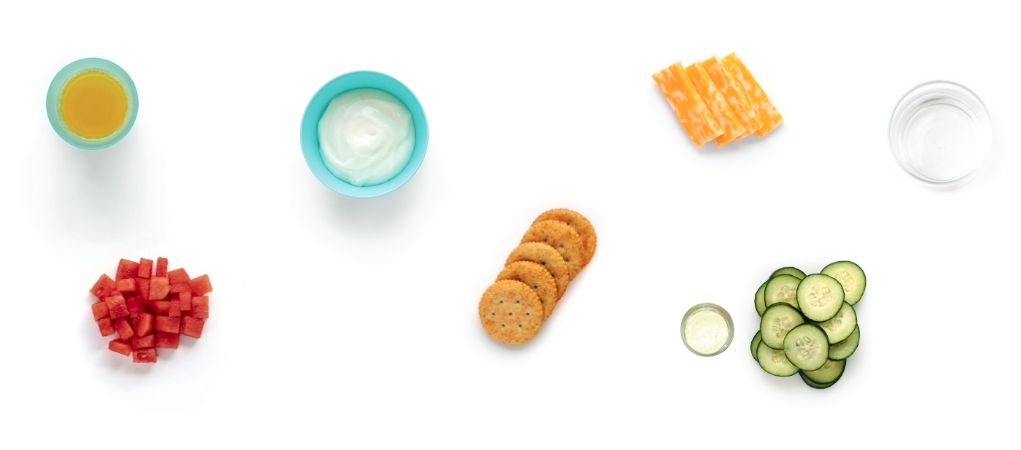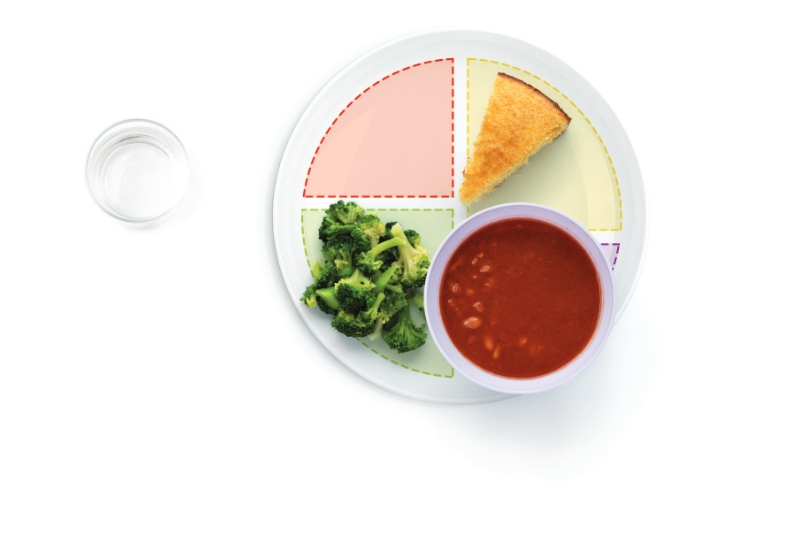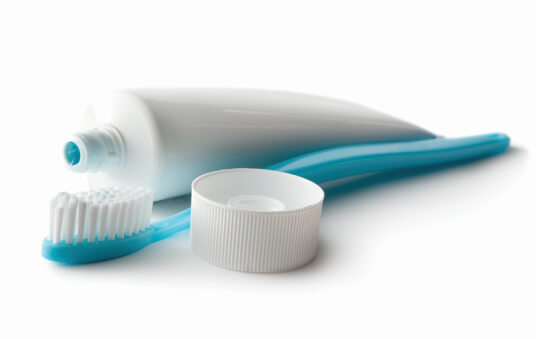
Tips For A Healthy Pregnancy

Dear Mom,

You want to have a healthy baby and keep yourself healthy, too. Eating nutritious foods and getting the care you need is one of the greatest gifts you give to your developing baby.
In this guide you will learn more about how WIC can help you:
- Learn about breastfeeding
- Make healthy food choices for you and your family
- Get referrals to healthcare and other community programs
- Learn how to keep your baby healthy and safe
- Buy healthy foods
The tips on this webpage do not replace your healthcare provider’s advice. Write down questions to ask before you go to your prenatal checkups.
When you visit your local WIC office, you can learn more about healthy eating.
We hope you enjoy all that WIC has to offer.
Sincerely,
Your WIC staff

Get Prenatal Care

Prenatal care is healthcare for pregnant women. A healthcare provider checks that you and your baby are okay.
You can expect:
- One checkup each month for the first 6 months.
- Two checkups each month in the 7th and 8th months.
- One checkup each week in the 9th month.
- One checkup 2-6 weeks after your baby is born (postpartum).
Get prenatal care as soon as you think you are pregnant. The above schedule is a guide; it is important to go to all recommended appointments. You can learn more about your baby and how your body is changing.
If you need help to pay for healthcare, call 1-855-626-6632 to see if
you are eligible for HUSKY/Medicaid.
Choose Healthy Foods for You and Your Baby

Your baby grows best when you eat healthy. Choose a variety of foods from all 5 food groups every day.
For a personal daily food plan, visit https://www.myplate.gov/.
 6-8 ounces per day (6-8 servings)
6-8 ounces per day (6-8 servings)
A serving equals:
- 1 slice bread or tortilla
- ½ bagel or hamburger bun
- ½ cup cooked rice, noodles or cereal
- 1 cup flake-type cereal
Eat whole grains like:
- Oatmeal
- Whole wheat bread or rolls
- Brown rice
- Whole wheat pasta
- Tortillas (whole wheat or corn)
 2½-3½ cups per day (5-7 servings)
2½-3½ cups per day (5-7 servings)
A serving equals:
- ½ cup cooked vegetables
- 1 cup raw vegetable
- 1 cup lettuce or other leafy greens
- ½ cup vegetable or tomato juice
Tips:
- Eat many kinds and colors: dark green, orange, red, yellow, purple, and white
- Add to: scrambled eggs, rice, noodles, salads, and casseroles
 1-1½ cups per day (2-3 servings)
1-1½ cups per day (2-3 servings)
A serving equals:
- ½ cup chopped or cooked
- 1 fruit – apple, orange, peach, etc.
- ½ cup 100% fruit juice
- ¼ cup dried fruit
Tips:
- Eat many kinds and colors: red, yellow, orange, blue, green, purple, and white
- Put sliced or chopped fruit on cereal, pancakes, pudding, and frozen yogurt
 3 cups per day (3 servings)
3 cups per day (3 servings)
A serving equals:
- 1 cup milk
- 1 cup yogurt
- 1 to 2 slices cheese
- 1½ ounces cheddar or similar cheese
- ½ cup shredded cheese
- ½ cup cottage cheese
Tips:
- Choose low-fat or non-fat milk
- If it is hard to drink milk, get ideas from WIC
 5½-6½ ounces per day (5½-6½ servings)
5½-6½ ounces per day (5½-6½ servings)
A serving equals:
- 1 ounce meat, chicken, turkey, or fish
- ¼ cup canned light tuna
- 1 egg
- ¼ cup cooked beans or tofu
- 1 tablespoon peanut butter
Tips:
- A 3-ounce serving is the size of a deck of cards
- Choose lean meats: bake, broil, or grill them
- Eat more beans; ask WIC for recipes
Here’s what your BREAKFAST might look like...
1 banana
1 cup non-fat or 1% milk

1 slice whole grain toast
1 cooked, scrambled egg
Here’s what your SNACKS might look like...
1 cup 100% orange juice
½ cup low-fat yogurt
3 or 4 slices cheese
1 medium wedge, cut up melon

5 or 6 whole grain crackers
½ cup cut up cucumber with 1 tablespoon dressing
water between meals and snacks
Here’s what your LUNCH might look like...
1 cup water
½ cup cooked broccoli florets

1 ounce cornbread
1 cup bean chili with ½ cup tomato juice
and ½ cup pinto and red beans
Here’s what your DINNER might look like...
1 cup mixed, green salad with ¼ cup tomato
with ½ hard-boiled egg with 1 tablespoon dressing
½ cup cooked, sliced carrots

1 cup cooked brown rice
with 3 ounces baked, sliced chicken
1 cup non-fat or 1% milk
Snacks: Tasty, Healthy, and Easy
Aim for two to three snacks each day. Try healthy snack combos by picking foods from at least two food groups including whole grains and low fat dairy options. These balanced snacks will keep you feeling satisfied.
EXAMPLE: Peanut Butter + Apple Slices
Grains
- Bagel
- Cereal
- Whole wheat or corn tortilla
- Crackers
- English muffin
- Graham crackers
- Oatmeal or grits
- Pita bread
- Raisin bread
- Whole grain bread
- Granola or trail mix
- Popcorn
Dairy or Protein
- Cheese
- Cottage cheese
- Frozen yogurt
- Yogurt
- Egg, cooked
- Nuts (like walnuts)
- Peanut butter or nut butter
- Hummus

Fruit or Vegetable
- Broccoli
- Carrots
- Green peppers
- Edamame
- Tomato
- Celery
- Avocado
- Apple
- Banana
- Grapes
- Melon
- Orange
- Peach
- Pineapple
- Raisins
- Strawberries

Fast Food Restaurant Tips

On the go? Ask for these fast foods:
- Grilled chicken sandwich
- Hamburger or cheeseburger
- Main dish salad or side salad
- Pizza topped with green peppers, tomatoes, and mushrooms
- Bean burrito
- Baked potato with vegetable and cheese toppings
- Fruit
- Water, low-fat milk, 100% juice, or seltzer
Food Safety Tips
- Wash your hands with soap and water before you eat or prepare food.
- Wash vegetables and fruit with water before eating or cooking.
- Cook beef, pork, chicken, turkey, fish, and seafood to the well-done stage.
- Heat to steaming before eating hot dogs, cold cuts, and deli meats like bologna, salami, or ham.
- Ask WIC staff or your healthcare provider what fish is safe and the recommended amounts to eat during pregnancy.
Don’t eat certain foods.
Some foods are not safe for you and your baby when you are pregnant.

Do not eat:
- Tilefish, swordfish, king mackerel, or shark
- Raw oysters, or fish like sushi, sashimi, or ceviche
- Undercooked, rare or raw meat like chicken, beef, or turkey
- Deli meat, spreads, or patés that haven’t been heated to steaming.
- Raw or soft-cooked eggs
- Smoked meats
- Uncooked hotdogs
- Feta, blue-veined, Brie, or Mexican-style (queso blanco or queso fresco) cheeses
- Unpasteurized (raw) milk or cheese
- Unpasteurized juice or cider
- Raw sprouts, like alfalfa sprouts
Ask your healthcare provider before you take herbs or drink herbal teas; they may not be safe for your baby.
Take Prenatal Vitamins

Prenatal vitamins have extra iron and folic acid to help your baby grow. Check to see if your prenatal vitamin has at least 150 mcg of iodine. If the prenatal vitamin you take doesn’t have this amount of iodine, ask your healthcare provider.

Don’t take any other vitamins unless prescribed by your healthcare provider.

Keep Your Teeth Healthy
Pregnant women go through hormonal changes that can impact the health of their mouth. To keep your teeth and gums healthy, be sure to:
- Brush your teeth (and tongue) at least two times a day.
- Floss your teeth daily.
- Drink water and avoid sugary drinks.
- Schedule a dental checkup early in your pregnancy. Be sure to let your dentist know that you are pregnant.
Use a soft-bristle toothbrush. Brush gently. If your gums bleed when you brush or floss, tell your healthcare provider. If you need help finding a dental provider go to https://www.ctdhp.com.
Be Active for a Healthy Body

Your body stays fit when you move it. If your healthcare provider says it’s okay, keep active. Walking, stretching, and swimming are two good ways. You can also find prenatal yoga or other workouts safe for pregnancy available for free online.
Being active will help you:
- Have more energy and feel less tired
- Sleep better
- Work off stress
- Tone your muscles
- Have better posture
Find time to be active for 30 minutes most or all days of the week.
You can break the time up like this:
Walk 10 minutes in the morning
Do 10 minute prenatal yoga video in the afternoon
Walk 10 minutes in the evening
30 minutes

Weight Gain

The amount of weight you should gain depends on your weight before pregnancy. Ask your healthcare provider, nurse or WIC staff for a weight graph to track your progress.
Your Pre-Pregnancy
Weight
Underweight
BMI less than 18.5
Healthy Weight
BMI 18.5-24.9
Overweight
BMI 25-29.9
Obese
BMI greater than
or equal to 30
Healthy Weight Gain
During Your Pregnancy
28-40 pounds
25-35 pounds
15-25 pounds
11-20 pounds
Weight gain during pregnancy helps your baby grow. First trimester weight gain should be 1-4 pounds. Starting in the 4th month, you may gain about half (½) to one (1) pound a week.
To keep a steady weight gain:
- Eat when you feel hungry
- Choose healthy foods to eat
- Drink water
- Keep active by walking

If you are expecting twins, triplets or more, talk with your healthcare provider about the weight gain that is right for you.
If your weight gain is:
Just right
You may lose the weight easier after your baby is born. It can help protect your health and the health of your baby.
Too little
Your baby could be born too small or too soon.
Too much
It could also increase your and your baby’s risk of long term health problems.

Keep Your Baby Safe and Healthy

It is recommended to avoid tobacco, nicotine, alcohol (beer, wine, liquor, or mixed drinks), marijuana, and illegal drugs during pregnancy. Each of these products can negatively impact you and your baby’s health.
We know it can be difficult to stop or reduce use of tobacco, nicotine, alcohol, marijuana, and illegal drugs.
If you are struggling to stop or reduce use, there are resources available to you.
You are not alone.
We are here to support you.
For support with quitting tobacco or nicotine use, including free coaching, a free quit plan, free educational materials, and referrals to local resources, visit www.quitnow.net/connecticut.
For support with quitting alcohol, marijuana, or other illegal drug use contact your healthcare provider or visit https://portal.ct.gov/DMHAS/Programs-and-Services/Women/Womens-and-Childrens-Programs.
Ask your healthcare provider before you take medicine to make sure it is safe for your baby.
Pregnancy Discomforts

Your body changes when you’re pregnant.You might feel sick to your stomach the first 3 or 4 months. Some smells and foods might make you throw up.
If you feel sick… (morning sickness):
- Open the window to let fresh air in and stale air out
- Get up slowly when you wake up and consider eating a few crackers before you get out of bed
- Stay away from smells that make you sick
- Eat cold foods if the smell of cooked food makes you sick
- Eat small amounts of food every one or two hours
- Drink liquids, but take small sips
“Morning sickness” can occur anytime of the day. Even if you feel sick, you still need food and liquids. If you can’t keep anything down, call your healthcare provider.

As your baby grows, you might get an upset stomach when you eat. It might be hard to move your bowels. Talk to your healthcare provider if you get these problems. Don’t take medicine unless advised by your healthcare provider. Here are some tips:
If you have heartburn… (indigestion):
- Eat 5 or 6 small meals, instead of 2 or 3 large ones
- Avoid fried or greasy foods
- Eat less spicy foods
- Drink small sips of water with your meals
- Sit upright or take a walk after you eat
- Avoid caffeine in soda, coffee, or tea
If you’re constipated… (can’t poop):
-
Eat foods with fiber like:
- Vegetables
- Fruits
- Beans and peas
- Whole grain cereals
- Whole wheat bread and crackers
- Whole wheat noodles
- Brown rice
- Corn tortillas
- Drink plenty of fluids, like water
- Walk after you eat
Give Your Baby the Best Start – Breastfeed!
Breast milk is all your baby needs for the first 6 months of life. Your milk has the right ingredients in the right amounts to give your baby the healthiest start in life. Breastfeeding is good for you too.
Breastfeeding moms say…
“Nighttime feedings are easier.”
“It saves me time – I don’t need to mix formula or clean bottles.”
“I feel more bonded with my baby.”
“It saves me money – I don’t need to buy formula or bottles.”

“When I breastfeed, I feel proud. My baby grows healthy and strong with a gift only I can give.”
Breastfeeding protects your baby’s health.
Babies who are breastfed have a lower risk of:
- SIDS –Sudden Infant Death Syndrome
- Allergies
- Illnesses, like colds, respiratory and ear infections
- Obesity
- Diarrhea and constipation
Breastfeeding is good for mom, too.
Breastfeeding helps you:
- Reduce your risk of obesity, heart attack, and stroke
- Lower your risk of breast and other cancers
- Keep your bones strong
- Get back to your pre-pregnancy size quicker
Breastfeeding Facts

A lot of moms have questions about breastfeeding. Talk with WIC staff about any breastfeeding concerns you may have or visit https://www.readysetbabyonline.com/resources/connecticut-resources/.
Breastfeeding whenever your baby is hungry will allow your body to make all the milk your baby needs.
Holding baby skin-to-skin while in the hospital and after going home helps you make milk.
Nursing shouldn’t hurt. If it hurts, get help. Call your or your baby’s healthcare provider, WIC clinic, local hospital, or La Leche League (LLL).
Ask for help at home, especially in the early days. Ask family and friends to pitch in with household chores and to watch other children. Dad or another family member can hold baby skin-to-skin, help with baths and playtime. Babies need lots of love and cuddling in addition to feeding time.
You can go back to work or school and continue breastfeeding. Most states have laws that require workplaces to support breastfeeding employees. There are also laws in all 50 states to protect moms when nursing in public. Visit https://www.breastfeedingct.org/laws. html to learn more about Connecticut’s law.
Moms who nurse can eat their favorite foods! No special diet is needed.

For more information on breastfeeding, visit wicbreastfeeding.fns.usda.gov.

Breast Pumps

It is important to plan for your hospital stay and when you take baby home. Use the Make a Plan checklist to think about how to meet your breastfeeding goals in the hospital and plan for the first few weeks home with baby at https://www.itsworthitct.org/make-a-plan.html
Thinking about Breast Pumps?
Pumped or expressed breast milk allows you to provide your milk for your baby when you are at work, school, or away from your baby. There are different types of pumps that moms may use depending on the situation.
Multi-user electric pump. This type of pump is best for when you or your baby are unable to breastfeed at the breast. Many moms with babies in the neonatal intensive care unit (NICU) use them. You might hear them be called hospital grade pumps. If properly used during the day and night (24 hours), these pumps are meant to provide enough breast stimulation for you to express all the milk your baby needs. Your insurance may cover a multi-user electric breast pump if you or your baby have a medical reason.
Single-user (personal) electric pump. These pumps are commonly used by moms separated from their baby for several hours a day, for example for work or school. Most moms use them 2-3 times per day. When used as directed during the work or school day, it allows you to provide the breastmilk your baby needs. When you are with your baby you can feed at the breast. Single user electric pumps are covered under most insurance plans, including Husky (Medicaid).
Hand or manual pumps. Manual pumps can be used for moms that are away from their babies a few times a week. A hand pump works when the moms uses her hands and the pump to express milk.
If you have HUSKY/Medicaid insurance, your healthcare provider can work with a durable medical equipment (DME) provider to get you the type of pump that you need. If you have private insurance, you can call your insurance company to learn their procedure for you to receive a pump.
If you do not have insurance, talk to your WIC Nutritionist and or peer counselor; WIC can help.
For safe handling and storage of pumped breast milk go to:
https://www.cdc.gov/breastfeeding/recommendations/handling_breastmilk.htm
Check out this link for how to clean breast pumps:

Make Time for Yourself

Having a baby is hard work! At times you may feel tired, emotional, and grumpy. You might even feel sad. Find time to relax and get some rest. If you feel overwhelmed, ask for help.
Ask for help from family and friends.
Talk to your healthcare provider.
Call the Postpartum Support International Helpline at
1-800-944-4773, visit
https://psichapters.com/ct/, or text
800-944-4773 (English) or 971-203-7773 (Spanish).
To show yourself some love:
- Try to get enough sleep and rest
- Take a few minutes every day just for you
- Spend time with people you enjoy
If you have thoughts of harming yourself or your baby, get immediate help. Call the National Suicide Prevention line at 1-800-273-8255 for free and confidential emotional support 24 hours a day, 7 days a week, or for immediate help dial 211 and press 1 for crisis.
